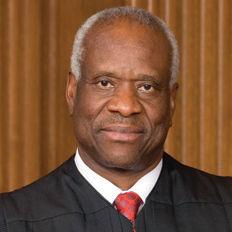
Thomas isn't a big talker—he famously went more than a
decade without asking a single question from the bench—but when the Supreme
Court upheld American Express' antisteering policies in June, the taciturn
Thomas' 5-4 majority written decision reverberated through the corporate travel
industry. Thomas proclaimed there was "nothing inherently anticompetitive"
about the antisteering provisions included in Amex's merchant contracts, which
bar retailers from incentivizing customers to use payment types with lower
merchant fees. In fact, Thomas argued, the provisions actually promote
competition by prodding other card networks to develop innovative products that
offer cardholders better rewards while charging merchants more for accepting
them.
In affirming Amex's approach of charging merchants higher
fees and passing the benefits on to cardholders, the decision ensured the
company's corporate cardholders will continue to have access to the perks they've
come to expect. And given Amex's leading position in the corporate card market,
other networks are more likely to emulate that model, bolstering their own
offerings to compete.
Meanwhile, the ripple effect of the high court's decision
extended beyond the card sector. Global distribution system operator Sabre
argued that the ruling should be grounds to dismiss the $15 million it was
ordered to pay US Airways in late 2016. A New York federal jury had found that
Sabre had restricted trade by forcing the airline to accept a full content
provision requiring the airline to list all its seats on Sabre in order to be
listed on the GDS. In a July letter to the Second U.S. Circuit Court of
Appeals, which is hearing Sabre's appeal of the jury verdict, Sabre argued its
distribution platform is comparable to the credit card market, in that it
serves two distinct groups of customers—in Sabre's case, travel agents and
airlines. Citing Thomas' reasoning in his Amex opinion, that cardholders
benefited from Amex merchant fees in the form of rewards and other perks, Sabre
argued that any cost its full content provisions impose on airlines is offset
by the benefits to its travel agent customers, who enjoy access to a larger
selection of seats.
The appeals court has yet to rule on Sabre's
appeal, but whatever the outcome, Thomas' words in the Amex decision likely
will echo through the corporate travel space for a long time to come.